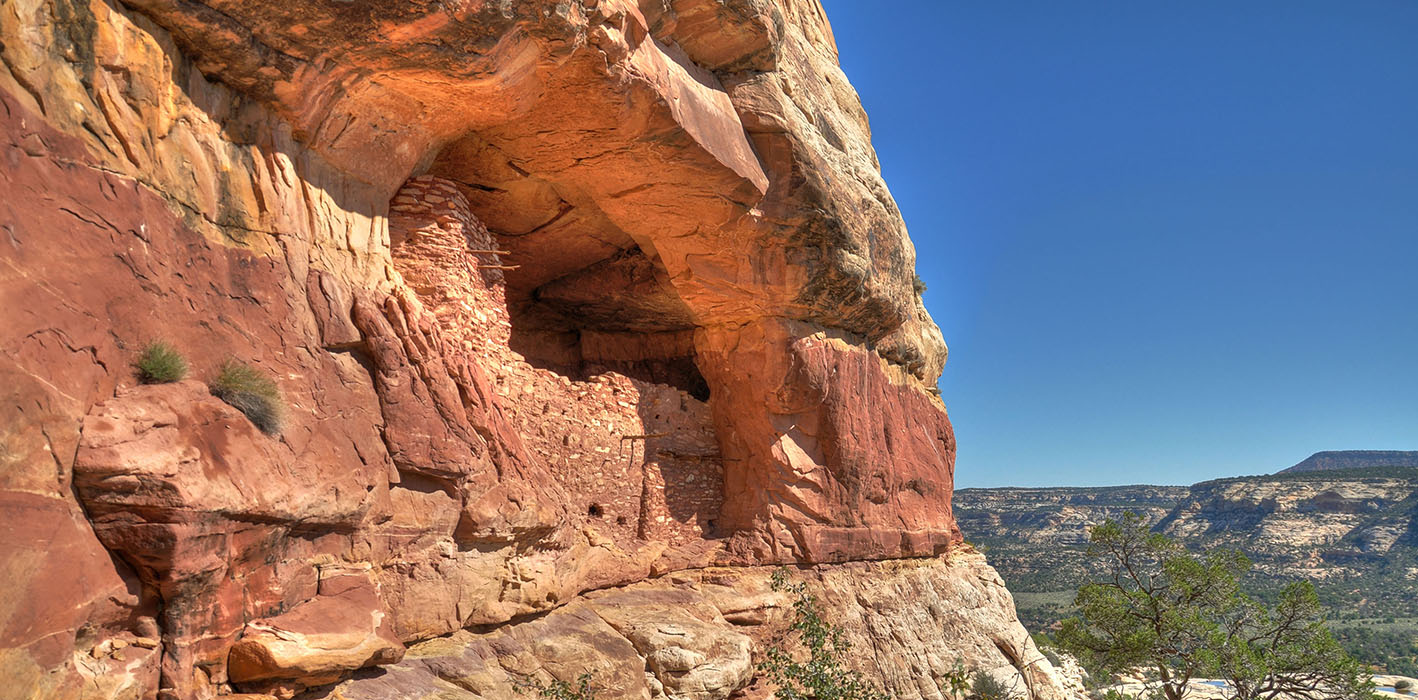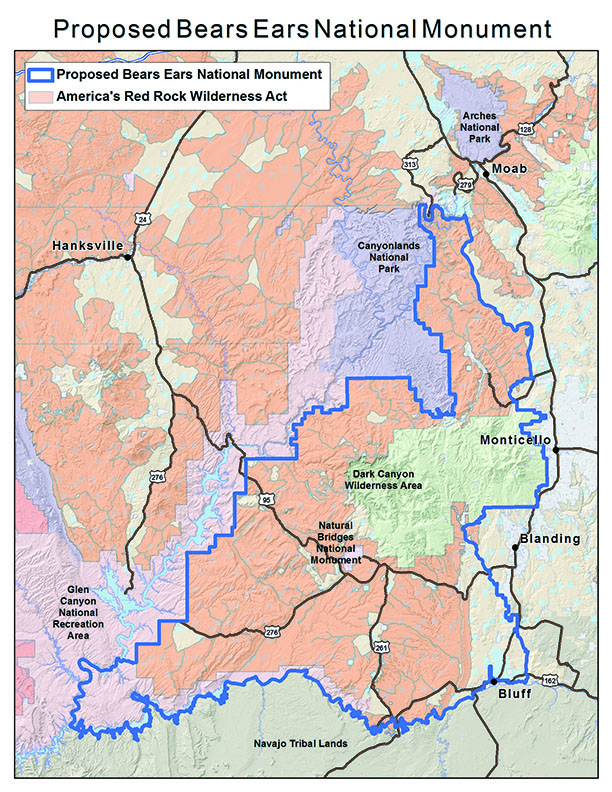A partnership of Native American governments has formally called upon President Barack Obama to use his authority under the Antiquities Act to establish a 1.9-million-acre Bears Ears National Monument in southern Utah.
The Bears Ears Inter-Tribal Coalition—an alliance of the Navajo, Hopi, Ute Indian Tribe, Ute Mountain Ute, and Zuni tribes—announced the action at an Oct. 15 press conference in Washington, D.C. The proposed national monument encompasses lands held sacred by the members of the coalition as well as a number of other tribes. It takes its name from distinctive twin buttes that rise above Cedar Mesa and stand as a regional landmark (see cover photo).
This is the first time tribes have linked arms to petition for a monument proclamation.
100,000 Cultural Sites within Area
The Antiquities Act was originally passed in 1906 to give the President the power to protect Native American antiquities as well as other objects of scientific and historic value on public lands. The Bears Ears initiative represents the first time tribes themselves—the living descendants of the people who created the artwork, pottery, villages, and cities that comprise the more than 100,000 archaeological and sacred sites within the proposed monument—have sought such protection.

This issue of Redrock Wilderness was heading to the printer the day after the tribes’ announcement, but we have no doubt that the response to the coalition’s proposal from Utah politicians will be swift and vehement. There has been no shortage of signals to that effect. A week before the press conference, Utah Lt. Gov. Spencer Cox was complaining to KXRK talk radio in Salt Lake City that, while “there are many parts within the greater Bears Ears that are sacred” [to tribes], there are “hundreds of thousands of acres that are not sacred . . . included in [the coalition’s proposal].”
We’re not sure where Lt. Gov. Cox gained his expertise on what Native American people do and do not revere. It may be the same place Rep. Rob Bishop learned what constitutes an antiquity (see “Bishop Says 13,000-year-old Clovis Point ‘Not Antiquity,’” p. 14). Bishop also said using the Antiquities Act is “seizing more land like bandits in the night.” Can an American politician really be so profoundly tone-deaf as to suggest that a national monument that Native Americans strongly support is like stealing someone’s land?
 Five Years of Research, Mapping
Five Years of Research, Mapping
The monument boundaries proposed by the Bears Ears Inter-Tribal Coalition reflect more than five years of cultural mapping work by the non-profit organization Utah Diné Bikéyah, which interviewed tribal elders to identify areas of ancestral and contemporary importance to tribes.
The proposal also recommends an unprecedented level of collaborative management between tribes and the federal government for the new national monument. The Bears Ears’ lands would remain in public hands and open to all Americans. But for the first time, those lands would be managed in a way that also honors the worldview of today’s Native people and their ancestors. A Bears Ears National Monument has the potential to create a world-class institute of learning and land management, bringing traditional knowledge into partnership with scientific, ecological, and conservation values.
Bears Ears Prominent in SUWA’s History
SUWA fully supports the Bears Ears Inter-Tribal Coalition’s proposal. It would protect lands that SUWA has long fought to protect: one of our first campaigns, more than 30 years ago, was to prevent the BLM from chaining (ripping out the pinyon-juniper forest) just below the Bears Ears themselves. It would also elevate the voices of tribal governments and tribal members, which for too long have been excluded or under-represented in land management discussions.
Indeed, that exclusion continues to this day. At the Washington press conference, Coalition Co-Chair Eric Descheenie criticized Rep. Bishop’s Public Lands Initiative (see previous article, p. 6) for ignoring tribal input and proposals since its inception. If Bishop simply incorporated the tribes’ Bears Ears proposal into his initiative, he would obviate the need for President Obama to use the Antiquities Act (which Bishop commonly calls “the most evil act in history”).
We’re not holding our breath for such inclusion and neither should you. Together, let’s hope that President Obama will use his Antiquities Act authority to honor the tribes’ request and protect the cultural
heritage of this magnificent landscape.
—Mathew Gross
(From Redrock Wilderness newsletter, autumn/winter 2015 issue)

